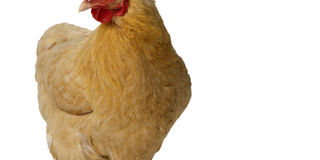Which worms affect poultry? How do they surface?

These are either round or flat worms. Flat worms are typically flat shaped and can be in form of a simple individual or a multi-segmented alternative. Round worms typically resemble earthworms with a red or whitish colour and are the most common. Worms are taken into the body from especially the ground or feed (as eggs) as birds feed. Once in the body, the worms mature into adults that occupy; lungs, the trachea and especially the intestine part of the digestive system of the bird. In the gut, they cause obstruction, damage to the intestinal wall. Worms also feed on nutrients meant for digestion of the bird and in the process, they cause bleeding in the gut and frustrate nutrient absorption. This causes intestinal bacterial infections thus leading to retarded growth plus drops in production. Common signs of worm infestations include; lack of appetite, retardation of growth, blood loss (anaemia) and diarrhoea. Intestinal blockage can lead to death. Regular deworming and change of dewormers (Piperazines, Levamisoles and Albendazoles) types from time to time as advised by the veterinary doctor, will keep the worms at bay.
Answered by Samuel Ssewagudde, a veterinary doctor affiliated to Genesis East Africa Limited.
What can compost be used for?
Because compost is made up of humus, it can be used for improving soil such as; Providing plant nutrients that are released throughout the growing season. The plant nutrients are released when organic matter decomposes and is changed into humus. The nutrients dissolve in water in the soil and are taken in by the roots of the crops.
It improves soil structure so that plant roots can easily reach into the soil. In sandy soil the humus makes the sand particles stick together thus reducing the size of the pores so that water stays longer in the soil.
In clay soils, the humus surrounds the clay particles making more pores in the soil so the root systems of plants can reach the water, needed nutrients, and air to move through the soil. It improves the moisture-holding capacity of the soil. The humus is a dark brown or black soft spongy or jelly-like substance that holds water and plant nutrients. One kilogramme of humus can hold up to six litres of water in the soil.
Which vegetables do not need a nursery bed
Yes they are there, for example, cucumbers, pumpkins, corns, among many others. However, you need to consider the kind of seeds either for direct planting or nursery. Look at the size and the germination rate of seeds. Gardening success can be greatly influenced by the varieties you choose to use.
Answered by Joseph Male an agronomist working with Holland Greentech Uganda
Where can Napier grass be grown?
Napier grass can be grown at altitudes ranging from sea level to 2,000 meters above sea level. The grass does best in high rainfall areas, over 1,500 mm per year. It grows best in deep, fertile, well-draining soils. It is drought-tolerant and can be used as dry season reserve in dry areas.
Whether root splits or canes are used, they should be sufficiently mature to cultivate well and produce tall and high yielding forage plants. Cane planting materials should be obtained from plants about to flower, where the stems are still green with no disease infection. Get cuttings from the National Livestock Resources Research Institute located in Tororo and Nakyesasa in Wakiso District near the National Crops Resources Research Institute (NaCRRI), Namulonge, Wakiso District.
Answered by Dr. Jolly Mary Kabirizi, Senior Principal Research Officer/Forage scientist, National Livestock Resources Research Institute (NaLIRRI)
What should I do when fertilisers cause stunted growth of crops?
If you do not use mature farm yard manure, it will cause stunted growth but if you use well decomposed farm yard manure, your beans will grow very well without stunted growth. Most farmers however get farm yard manure from the farm and throw it in the garden when it has not yet decomposed which produces heat that affects the seeds causing stunted growth.
Answered by Dr Robert Muzira, beans expert
Send your questions to [email protected]




